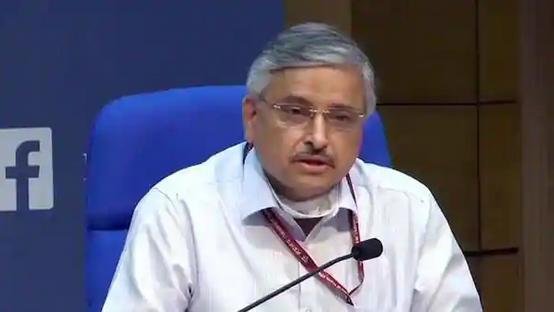
Third wave of COVID unlikely, booster shots on hold for now: AIIMS chief

India may not have to confront the highly-dreaded third wave of the COVID-19 pandemic as experts have said that there is less likelihood for the infections to shoot as timely vaccination and the exposure of a large population to the virus have kept cases low since Diwali.
In light of this, AIIMS Director Dr Randeep Guleria said that the booster doses of COVID-19 vaccine may not be needed right now as the government’s focus would be to widen the vaccination coverage.
“The vaccines are holding up, we are not seeing breakthrough infections causing a surge in our admissions, our sero-positivity rate is very high. All of these suggest that as of now, we really don’t need a booster dose. We may need it in the future that is definitely there. But as of now we don’t need a booster dose,” Dr Guleria said on Tuesday while speaking at the launch of the book Going Viral, by ICMR director general Dr Balram Bhargava which talks about the making of Covaxin.
Guleria instead stressed that the country needs to administer the first and second doses of the vaccine to more people to be “well protected as a country”.
Experts haven’t ruled out the possibility of the emergence of a more transmissible variant, like Delta, in the future, but are unanimous in their opinion that the third wave, if at all it occurs, wouldn’t be as severe as the second wave of the pandemic in India.
They say, even though cases may peak between December and February (2022), the impact would be way milder than that seen in April-May this year, where thousands of Indians died due to lack of hospital beds and oxygen.
Agreeing that a chance of an outbreak as massive as the second wave is declining by the day, Dr Guleria said, “As our vaccination programme is moving forward, as we are seeing low vaccine hesitancy and as we are seeing the vaccines are holding out – in terms of preventing severe diseases and preventing hospitalization and death – the chance of any huge wave is declining with each passing day. It is very unlikely that we will see a huge third wave,” he said.
He, however, clarified that the disease will come down to endemic level and cases will continue to be reported.
“…we will have some patients who will be sick but it will not be of the magnitude that we saw in the first and second waves and most of us will be protected,” he said.
Experts have attributed the fall in cases to the development of hybrid immunity in the past few months. Scientific studies have said that people infected with COVID who recover before vaccination develop “hybrid immunity”, much superior than the immunity gained from vaccination antibodies.
Sero surveys conducted by ICMR in the course of the pandemic have also found that a considerable portion of the population – one third as per the latest survey in July – has been exposed to the virus during the second wave of the pandemic.
The wide vaccination coverage has only helped in keeping the infections at bay, say experts.
Speaking on booster doses, NITI Ayog member Dr VK Paul said several aspects need to be checked out before presenting them before people.
“When you take a decision on an additional dose, it has to be based on sound information and there are many aspects. It has to be different for different vaccines…data for A may not be applicable for B…another question is of duration. Is it six months, nine months?…we are looking at the data systematically, we are looking at how it needs to be done…As of now, a vaccine priority for booster for any nation happens once you have given two doses to a large population. That work is not complete…There is also a moral dimension that there are people waiting for their first two doses…” he said.


